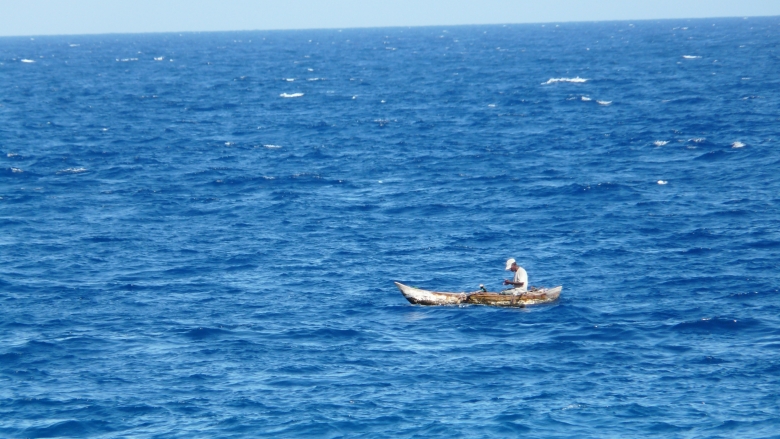The 2015 United Nations Climate Change Conference (COP21) prominently featured the role of oceans, inland waters, and aquatic ecosystems for temperature regulation and carbon sequestration and highlighted the urgency of reversing the current trend of overexploitation and pollution to restore aquatic ecosystem services and the productive capacity of the oceans. In addition, in 2015, Member States of the United Nations adopted the 2030 Agenda for Sustainable Development and the Sustainable Development Goals (SDGs), a set of 17 aspirational objectives with 169 targets expected to guide actions of governments, international agencies, civil society, and other institutions over the next 15 years (2016-2030). Several SDGs are directly relevant to the sustainable development of a blue economy. One goal expressly focuses on the oceans (SDG 14 “Conserve and sustainably use the oceans, seas and marine resources for sustainable development”).
Building on commitments made during COP21, the World Bank’s Africa Climate Business Plan as well as the World Bank Group’s Climate Change Action Plan and African Union’s Agenda 2063, the Republic of Mauritius and the World Bank held the African Ministerial Conference on Ocean Economies and Climate Change in Mauritius on September 1-2, 2016 (the “Mauritius Conference”). During this event, Ministers and representatives of participating countries[1] acknowledged the need to deepen, strengthen and operationalize the platform that was created because of the Mauritius Conference, to develop the ocean economy in a changing climate, identify challenges and opportunities and find common solutions. Furthermore, the participants called on development partners, in particular the World Bank Group, the African Development Bank and the Food and Agriculture Organization of the United Nations, to support ocean economies and the resilience of oceans and coastal areas to climate change through dialogues, and technical and financial assistance. The three institutions prepared an “African Package for Climate-Resilient Ocean Economies,” which presents a notional set of programs to develop the ocean economy in Africa in a sustainable and climate-resilient fashion, and was presented at COP22.
Following the Mauritius Conference, the Government of the Seychelles (“GoS”) and the World Bank discussed the organization of a second conference to take place in Seychelles in early-2018. Seychelles is an appropriate host for this second conference due to its increasing visibility as an example of bold and progressive blue economy initiatives. Specifically, Seychelles has made significant progress in the areas of fisheries management, biodiversity conservation and marine spatial planning (through the innovative debt swap with The Nature Conservancy for conservation and climate adaptation), and crowding in private sector investment in support of blue economy objectives (through the SWIOFish3 project financed by the World Bank and the Global Environment Facility, and its support for the first ever blue bond, to be issued by the GoS).
The “Mauritius Communiqué” was signed and endorsed by 19 countries and supported by a large number of organizations. The Communiqué and other information pertaining to the conference are available on the Mauritius Conference website.
